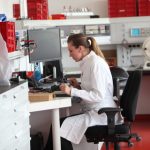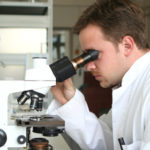
Sufficient vitamin D may help prevent rheumatoid arthritis
Maintaining sufficient vitamin D levels may help to prevent the onset of inflammatory diseases like rheumatoid arthritis, according to the University of Birmingham. The research also found that while Vitamin D can be effective at preventing the onset of inflammation, it is less effective once inflammatory disease is established because conditions such as rheumatoid arthritis … Continue reading Sufficient vitamin D may help prevent rheumatoid arthritis

Link between vitamin D and improved live birth rates
Researchers are calling for a randomised clinical trial to investigate the potential role of vitamin D supplementation in improving live birth rates following assisted reproduction treatment (ART). The University of Birmingham reports this follows a review and meta-analysis published in Human Reproduction, which shows a strong link between low vitamin D concentrations in women and … Continue reading Link between vitamin D and improved live birth rates

Mechanisms bacteria use to resist antibiotics discovered
Researchers at the University of Birmingham have identified new mechanisms used by bacteria to resist infection fighting antibiotics. Antibiotic resistance happens when bacteria evolve mechanisms to withstand the drugs which are used to treat infections. The University of Birmingham reports that a team of experts at its Institute of Microbiology and Infection focussed their research … Continue reading Mechanisms bacteria use to resist antibiotics discovered

Pursuing novel therapeutic targets for IBD
A group of University of Birmingham research scientists has received a prestigious Innovators Award from US-based Kenneth Rainin Foundation to fund foundational research in Inflammatory Bowel Disease (IBD). There is currently no cure for IBD, which affects 2.5 million people across Europe and is increasing globally with industrialisation. It is a chronic condition with a … Continue reading Pursuing novel therapeutic targets for IBD

Scientists awarded £1.5m for bowel cancer research
Cancer Research UK has awarded the University of Birmingham £1.5m to fund a five year research programme aimed at finding new treatments for bowel cancer. The University of Birmingham reports that the pioneering research, the first of its kind in the UK, will see scientists taking samples of two hundred patients’ bowel cancer in order … Continue reading Scientists awarded £1.5m for bowel cancer research

Delayed word processing could predict Alzheimer’s
Research led by the University of Birmingham has discovered that a delayed neurological response to processing the written word could be an indicator that someone with mild memory problems is at an increased risk of developing Alzheimer’s. The University of Birmingham reports that, using EEG, researchers studied the brain activity of a group of twenty … Continue reading Delayed word processing could predict Alzheimer’s

Normal births more likely lying down with an epidural
A study has found that adopting a lying down position rather than being upright in the later stages of labour for first time mothers who have had a low dose epidural leads to a higher chance of them delivering their baby without any medical intervention. The University of Birmingham reports that Professors Peter Brocklehurst and … Continue reading Normal births more likely lying down with an epidural

Apps launched for atrial fibrillation
New novel smartphone and tablet apps for people with atrial fibrillation and healthcare professionals have been launched by heart experts in collaboration with the University of Birmingham. Atrial fibrillation is the most common heart rhythm disorder and significantly increases the risk of stroke and death. One in four middle aged adults in Europe and the … Continue reading Apps launched for atrial fibrillation

Gold nanoparticles used to track blood flow
University of Birmingham scientists have designed gold nanoparticles, which the university reports are no bigger than 100 nanometres and can be coated and used to track blood flow in the smallest blood vessels in the body. By improving the understanding of blood flow in vivo the nanoprobes represent an opportunity to help in the early … Continue reading Gold nanoparticles used to track blood flow

New method for tissue regeneration
The University of Birmingham has reported that scientists have found a way of mimicking the body’s natural healing process, using cell derived nano-sized particles called vesicles, to repair damaged tissue. The paper, published in Scientific Reports, describes a new approach to bone regeneration; stimulating cells to produce vesicles which can then be delivered to facilitate … Continue reading New method for tissue regeneration








